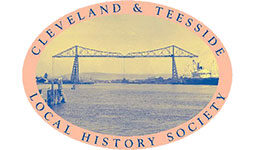Commodore William Wilson of Ayton Hall joined the Honourable East India Company as a 14-year-old midshipman in 1729. Over the next 20 years he rose through the ranks on several different ships, until becoming Captain of the Suffolk, trading between England and China by way of India. He made his fortune with the East India Company, referring in one letter to his wife Rachel to “the Riches of India”. His last voyage in the Suffolk began in 1756 and while he was away the Seven Years War broke out. Although this was a war between the great powers of Europe, it was in one sense a ‘world war’ since two of the protagonists were Britain and France. Rather than fighting it out across the English Channel, these two maritime powers faced each other in their colonies, in places as far flung as North America and the Indian sub-continent. British East Indiamen were immediately at risk of attack from the French navy and tended to travel in convoys where possible. In 1757 Captain Wilson was leading a convoy of three richly laden merchant ships back to England from China when they encountered two French frigates of the Cape of Good Hope. The British were able to inflict enough damage on the French frigates to make them turn away. The three ships reached home with their cargoes totalling several hundred thousand pounds intact, for which the East India Company was extremely grateful. They paid handsome rewards to the crews and their commanding officers, and each of the captains received a silver plate worth 100 guineas.
William Wilson was now a rich man and could have retired, but the incident with the French frigates had convinced the East India Company that their ships should in future be larger and more heavily armed. They converted a captured French ship into a 600 ton vessel carrying 50 guns and they offered William Wilson the lucrative post of Commodore. He renamed this ship the Pitt, after the Prime Minister and set sail for China with the aim of establishing a new route that would be unknown to the French. He succeeded brilliantly. His brother-in-law the diarist Ralph Jackson wrote that it was “the quickest Passage ever before known”.
After his highly successful maritime career, Commodore Wilson turned to his estate at Ayton Hall, where he was so keen on innovations in farming methods that he attracted the attention of Arthur Young, the country’s leading agricultural writer. Arthur Young visited William Wilson and admired the “drill plow” that he had invented and the “levelling machine” that he used on his arable land. Another distinguished visitor was Captain James Cook. No doubt the two men had much in common to talk about. Ian Lawrence enlivens the story of these visits and William Wilson’s naval exploits with extracts from letters and diaries and with tales from William Wilson’s later career as a Justice of the Peace, including “murder most foul”. Commodore Wilson was a man of great talent and experience who deserves to be better known in his own home county.
